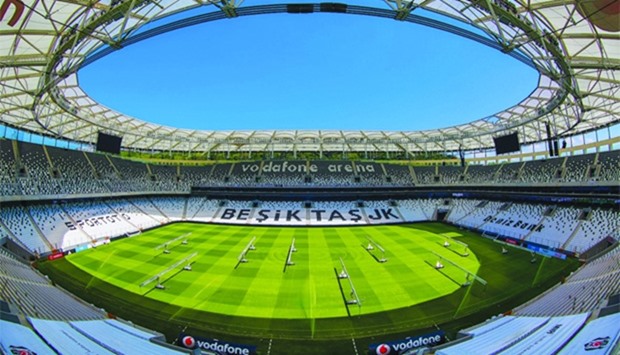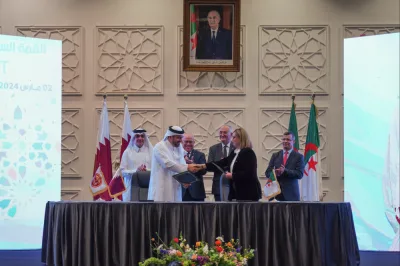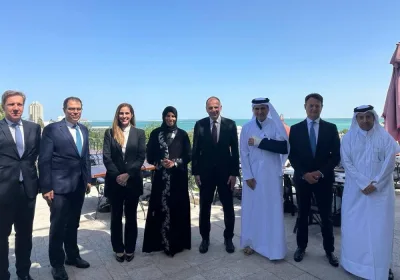The agreement focuses on facilitating the transfer of knowledge, expertise, and technological know-how from Turkey’s state-of-the-art and first smart stadium, the Vodafone Arena to Qatar.
“The ability to share videos, pictures and messages with people online will be an important aspect of the fan experience six and a half years from now,” Vodafone Qatar COO Mohamed al-Sadah told reporters at the signing ceremony in Istanbul over the weekend. The event was attended by Vodafone and Besiktas officials.
A global leader in ‘Internet of Things’ technology, Vodafone wants to provide exceptional digital experience and superfast internet connectivity to a large number of sport fans who will be watching the first World Cup in the Middle East in 2022.
Al-Sadah said the Vodafone Arena in Besiktas district will serve as a model for them in coming up with smart stadia in Qatar, which is set to build eight stadiums for the prestigious tournament.
“We are committed to bring expertise and innovation to Qatar and to provide it with cutting-edge telecommunication infrastructure that supports the FIFA World Cup 2022 and National Vision 2030,” he stressed.
Vodafone invested some $10mn for the smart stadium solutions alone, making it one of the most advanced technological infrastructures in the world.
Vodafone Turkey CEO Gökhan Ö?üt noted that the 42,000-capacity stadium has 350 mobile coverage areas, which is equivalent to a small-scale town in Turkey.
Spectators can access 620 Wif-Fi spots, 2G, 3G, and 4.5G broadband network connections, rich content displays on 850 video walls, and a Vodafone Arena application.
More than 142km of cable are supporting the Arena’s telecommunications system and Wi-Fi network, connecting the rooms to the data centre.
“We feel quite excited to export this smart infrastructure to Qatar,” Ö?üt said, as he vowed to share their smart stadium experience with Vodafone Qatar, providing them with all the support they need.
During the last two matches at the Arena, around 27,000 subscribers used 1.8TB worth of data using Vodafone’s SuperNet 4.5G with speeds up to 300Gbps. Some 2.5mn photographs were downloaded using the mobile network.
“To be specific, viewers had enjoyed speeds of 160megabytes per second, this is very difficult to provide for so many users but we were able to do it,” Ö?üt noted.
The Arena’s mobile application also enhances the game experiences and real time statistics are shared, according to Vodafone officials. Live broadcast of the game is also available through this mobile app.
Vodafone is planning to apply Beacon technology that will enable spectators to order food without leaving their seats.
Ö?üt said they will be implementing these types of technology and application gradually as the company is looking at some of the best practices in the world.
The payment system, navigation within the stadium, car parking, and different services will be fully digitalised in the future, he added.
Vodafone Qatar’s chief business officer Mahmud Awad said they are planning to replicate the Arena’s smart technology experience, touted as one of the best stadia in the world today.
“In the process of building stadium very soon, we are looking forward to harness this expertise and utilise it to the utmost extent,” he added.



